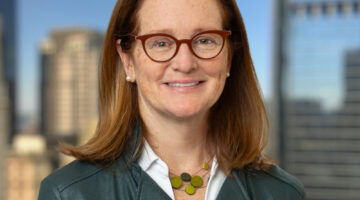As I was recently accepted into the Boston Bar Association’s Public Interest Leadership Program, I have been reflecting on my journey in Pro Bono legal work. My first time as a volunteer was with my college program in China. We had a social practice of college students bringing culture, technology, and healthcare skills to people living in the countryside. As a child who grew up in the city, I always wanted to utilize my knowledge and skills to help people. When I saw the program post, I talked to my friends in law school, and we decided to start the journey together. That was in 2007.
I submitted a proposal that our group would help needy communities receive basic legal education. I chose Dianbai District, Maomin City in Guangdong Province as our base. My emphasis focused on women and children experiencing poverty, and the Chinese Community. I established a team with 15 other law students and took my team to the base to offer free legal clinic services. During the time of our program, we were able to assist the residents from the countryside who could not afford an attorney or any legal services, and our monthly clinic helped people to receive basic legal education and assistance.
During my service to the clinic, I received a lot of inquiries from elders who needed to stay home and look after their grandchildren. They could not visit our base because of the long distance, and they did not have sufficient funds or resources to commute. Knowing about their difficulties, we decided to visit them at home. During our visits, we were shocked to learn that almost all of their children were in the big city doing construction work. Most of them had not seen their children for at least five years. This was because their children wanted to save the money they would have spent on the commute and instead send it back to the grandparents and the grandchildren. Almost all grandchildren grew up with their grandparents (and without their parents). After hearing about their stories, we decided to expand our support services. Not only did we assist the grandparents to apply for government benefits and solve their legal disputes, but we also initiated classes for the grandchildren where we taught them Chinese, English, Math, and Music.
Our efforts have been richly rewarded. Recently, one of our team members hired a legal intern for the court and was astonished to learn that he had helped the child 17 years ago. My team members called me and sent me a picture named “legacy.”
In 2014, I became a lawyer in the United States and continued my journey. I have continued working on various volunteer programs through non-profit organizations. I have volunteered in the New York Legal Assistance Group, IRS Volunteer Income Tax Assistance Program, Asian Community Development Corporation, Free Legal Clinic of Norfolk Bar Association, Rice Sticks and Tea Asian Food Pantry, to name a few. Through all these programs, I use my language skills and my professional legal knowledge to help people. And it also exposes me to the capacity challenges that accompany program management: there is great need, but too few resources.
I still remember that in my volunteer program I met a Chinese single mom who could barely speak English and was looking for help on her estate plan. Her mother had died in an accident. She was herself diagnosed with cancer and her daughter was only 17 years old. She worked as a caregiver and was paid minimum wages. All bad things come in succession. Since she could not afford an attorney, I tried to contact several local legal clinics. Unfortunately, none of them provided estate planning services. Considering her health condition and immediate needs, I discussed with my firm and we decided to help her as a Pro Bono project. This experience made me think further – how I can really help my community. Pro Bono program? Legal clinic? Basic legal education?
Today, I am continuing my journey. I work with a lot of volunteer programs to build communities which can help people obtain basic legal education and services. Through my work at these nonprofit organizations, I have gained a deeper understanding of both the conceptual and practical issues relating to what the public really needs and areas where civil service reform could make a real difference. It’s a long journey and it’s just like a famous verse in “Li Sao” by Yuan Qu, “Long, long had been my road and far, far was the journey; I would go up and down to seek my heart’s desire.” (1)
Yi Ke is an Estate Planning attorney at the Boston-based law firm Conn Kavanaugh Rosenthal Peisch & Ford, LLP. Yi serves clients in English, Mandarin, and Cantonese. She can be reached at yke@connkavanaugh.com.
(1) “路漫漫其修远兮,吾将上下而求索” – 出自诗词作品《离骚》 ,作者屈原.
Share with your network:

